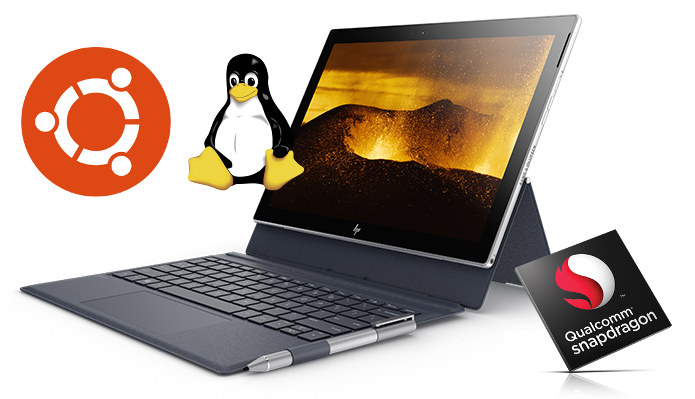The first “proper” Windows 10 Arm laptops were unveiled at the end of 2017 and beginning of 2018, all based on Qualcomm Snapdragon 835 processor with always-on LTE connectivity, 20+ hour battery life, a fairly expensive price tag, and somewhat underwhelming performance.
Qualcomm was not interested in supporting Linux, but there was interest from the community, and now it seems Ubuntu 18.04 images are available for Lenovo Miix 630, HP Envy x2, and ASUS Novago TP370 thanks to Aarch64-laptop project currently hosted on Github.
Now the prebuilt images are not really ready for end users since UFS storage and WiFi are not working on any laptop yet, the touchpad is not working on the ASUS laptop, and accelerated graphics needs to be implemented.
Interestingly WiFi is related to UFS on those laptops, and Marc Gonzalez is said to be being actively worked on UFS upstream support, which should enable for internal storage and WiFi. That means now you’d need to flash the image and boot from an SD card.
All laptops support the following:
- Boots into Grub Normal Mode
- Boots Linux kernel from rootfs’ /boot partition using Device Tree
- Boots to text Ubuntu login prompt/shell
- SD Card Storage
- USB
- GUI Desktop (using Framebuffer)
- Keyboard
So at this stage, If you need network access, you may have to plug a USB to Ethernet adapter until UFS/WiFi gets worked out.
You can follow the status for each laptop, and instructions to build your own image in the “build” repository.
Via Phoronix

Jean-Luc started CNX Software in 2010 as a part-time endeavor, before quitting his job as a software engineering manager, and starting to write daily news, and reviews full time later in 2011.
Support CNX Software! Donate via cryptocurrencies, become a Patron on Patreon, or purchase goods on Amazon or Aliexpress





